The cost of paying out universal credit could surge by around £9.6bn a year following more than 1.4 million additional claims from people hit by the coronavirus crisis, a senior official has said.
Neil Couling, the director general of universal credit at the Department for Work and Pensions (DWP), said the benefits bill would rise by “billions” in the coming months as the impact of the coronavirus lockdown hits the economy.
In a briefing to journalists, he warned that some people may be “confused” by their entitlement and could receive less money than they expect when the first tranche of new claims are paid from 22 April.
Download the new Independent Premium app
Sharing the full story, not just the headlines
Mr Couling also said it would be “just impossible” to cut the five-week wait for payments for first-time claimants and tinkering with the system at this stage could cause problems.
Some 1.4 million applications have been made for universal credit – which rolls several working-age benefits into a single payment – since 16 March, after 18 per cent of the workforce saw their hours cut or were made redundant due to the outbreak.
Asked about the cost of the extra claimants, Mr Couling would not give an exact forecast but added: “It will be billions because of the nature of the expenditure on universal credit.
“The average universal credit payment is £800 a month. So say if you did 800 times 12, times the million or so people who will be entitled, you can roughly approximate that just from that kind of calculation.”
His suggested calculation amounts to £9.6bn a year. He added: “But we’ll do proper forecasts when we’re clear what the people who have come onto universal credit are entitled to and project some of that forward.”
The spike represents a major increase compared with a typical period, where around 55,000 new claims would be made per week, he said.
But Mr Couling insisted that the welfare system would “take the strain” of new claimants, adding: “That is what it was designed to do.”
The latest news on Brexit, politics and beyond direct to your inbox
Some families may receive less than they are expecting if they have received redundancy payments or a final pay packet in the month they applied for universal credit, leading to confusion among new claimants.
Mr Couling said: “I think there’ll be a few confused people out there for the first couple of weeks here because they haven’t had experience of how universal credit works before, so we are going to try to explain all of that to them.”
Around 87 per cent of claims will be paid in full after five weeks, he said, but added that he was “confident” that the DWP can do better than that.
Asked if the assessment time could be reduced, he said it was “just impossible”, adding: “You can’t change the monthly assessment period, it’s integral to how universal credit will work.”
Some 10,000 staff have been seconded to help from other parts of the DWP, as around 20 per cent of the workforce has been forced to self isolate due to Covid-19 symptoms in their household.
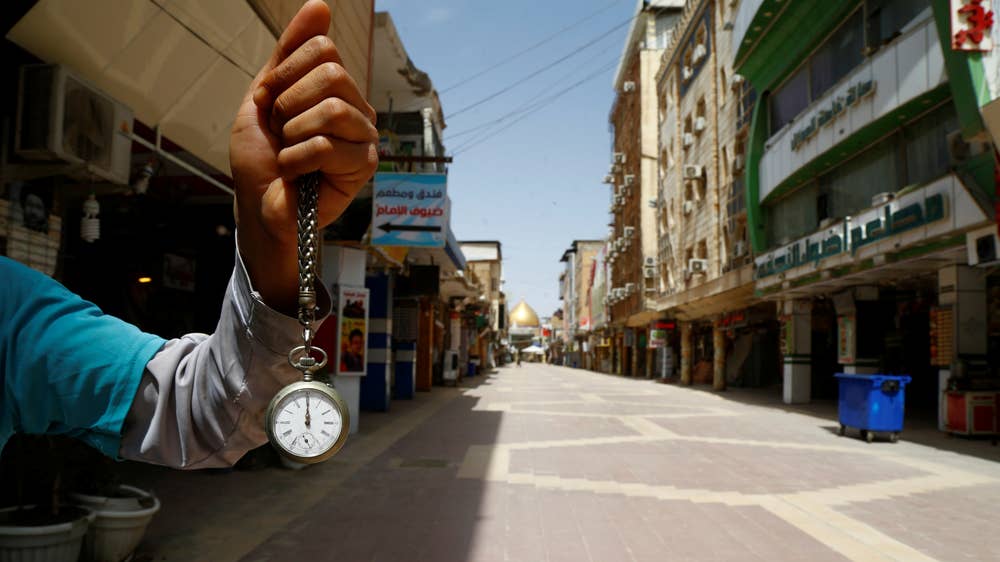
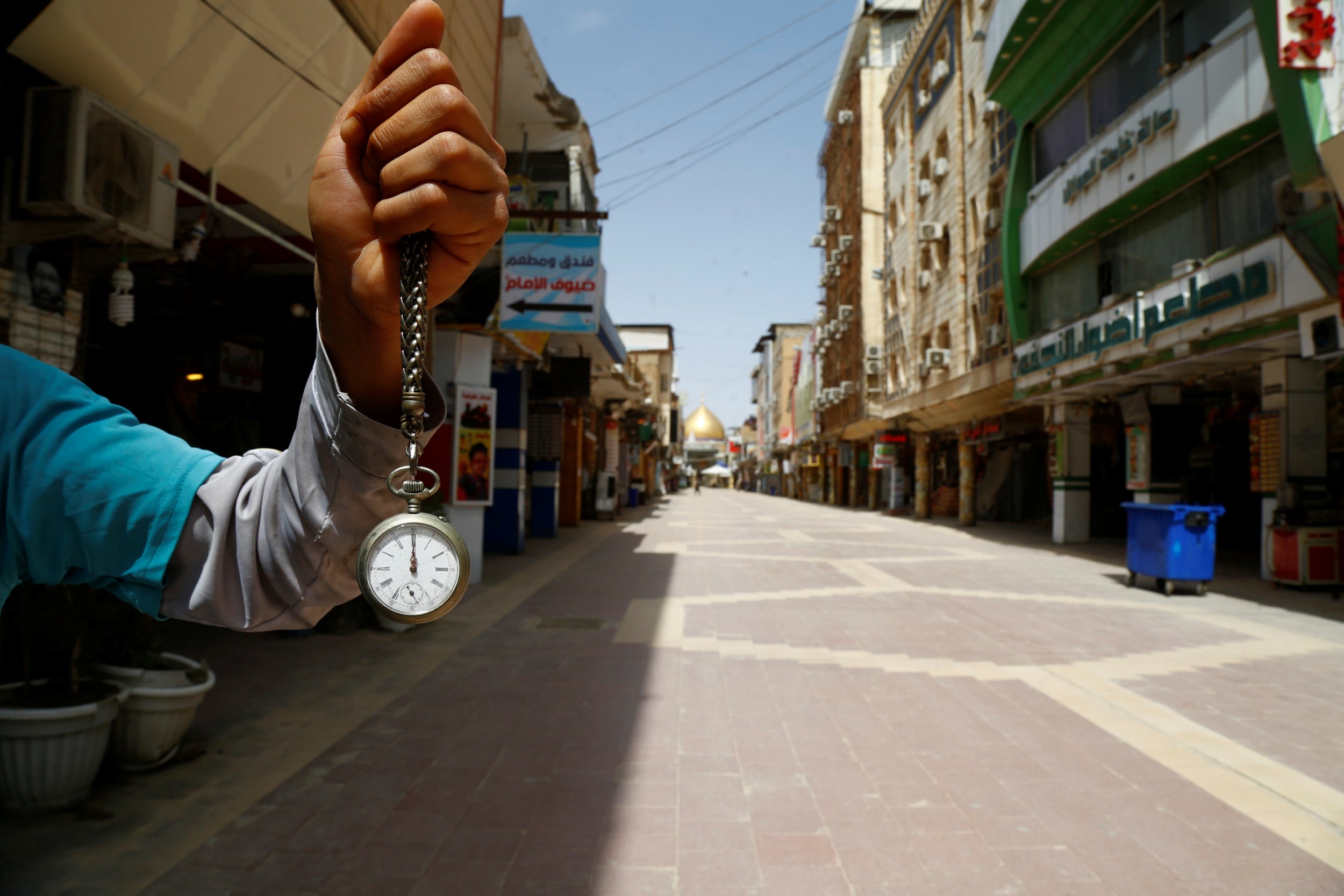
1/18 Najaf, Iraq
A man holds a pocket watch at noon, at an almost empty market near the Imam Ali shrine
Reuters

2/18 Bangkok, Thailand
Wat Phra Si Rattana Satsadaram (The Temple of the Emerald Buddha, also known as The Grand Palace)
Reuters

3/18 Prague, Czech Republic
Empty streets at Old Town Square
Reuters
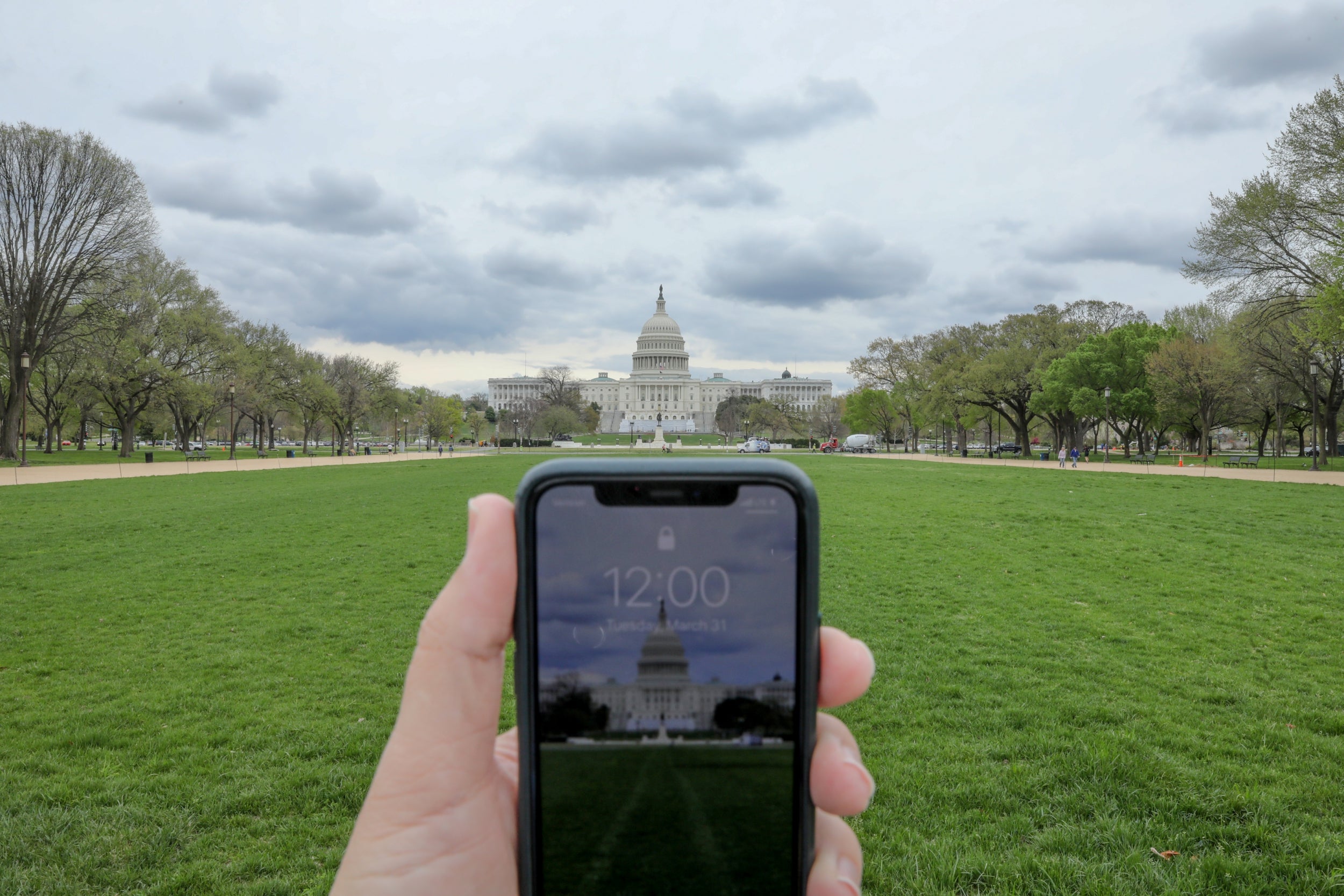
4/18 Washington, US
United States Capitol
Reuters

5/18 Jerusalem’s Old City
A watch showing the time at noon, in front of Damascus Gate
Reuters
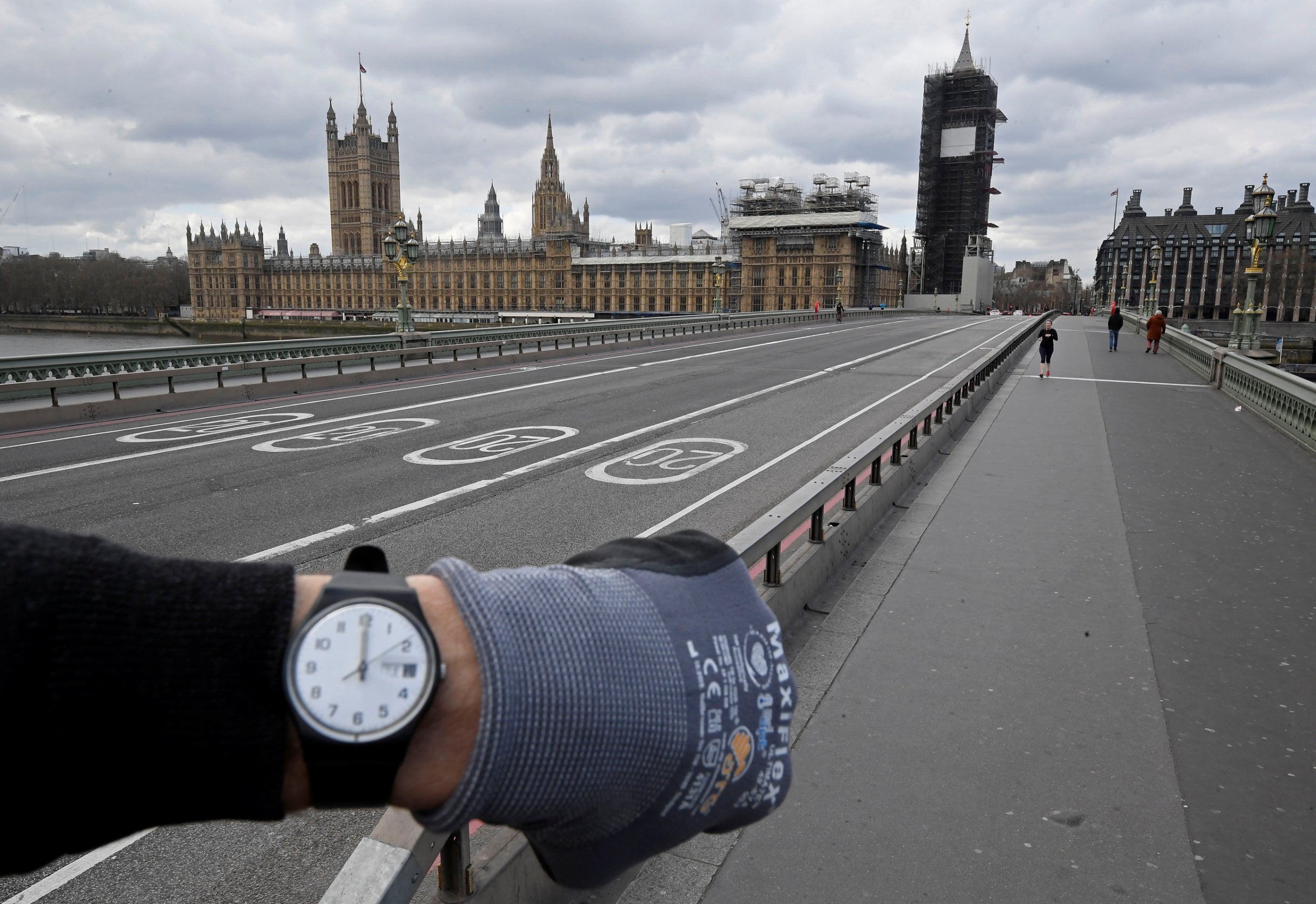
6/18 London, UK
A woman jogs past the Houses of Parliament on Westminster Bridge
Reuters
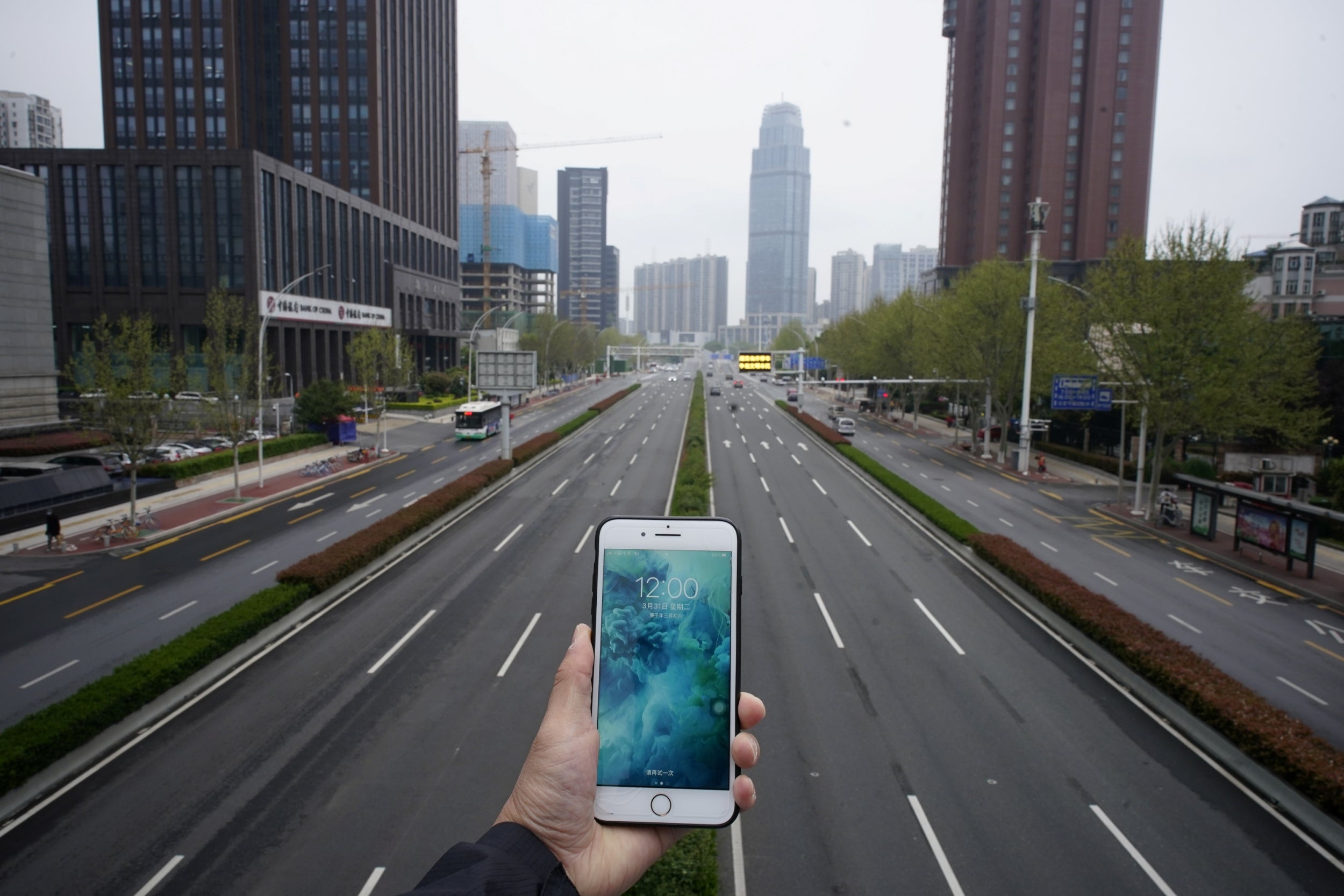
7/18 Wuhan, China
Empty road with low traffic
Reuters

8/18 Havana, Cuba
The seafront Malecon next to an almost empty road
Reuters

9/18 Cairo, Egypt
Tahrir Square
Reuters
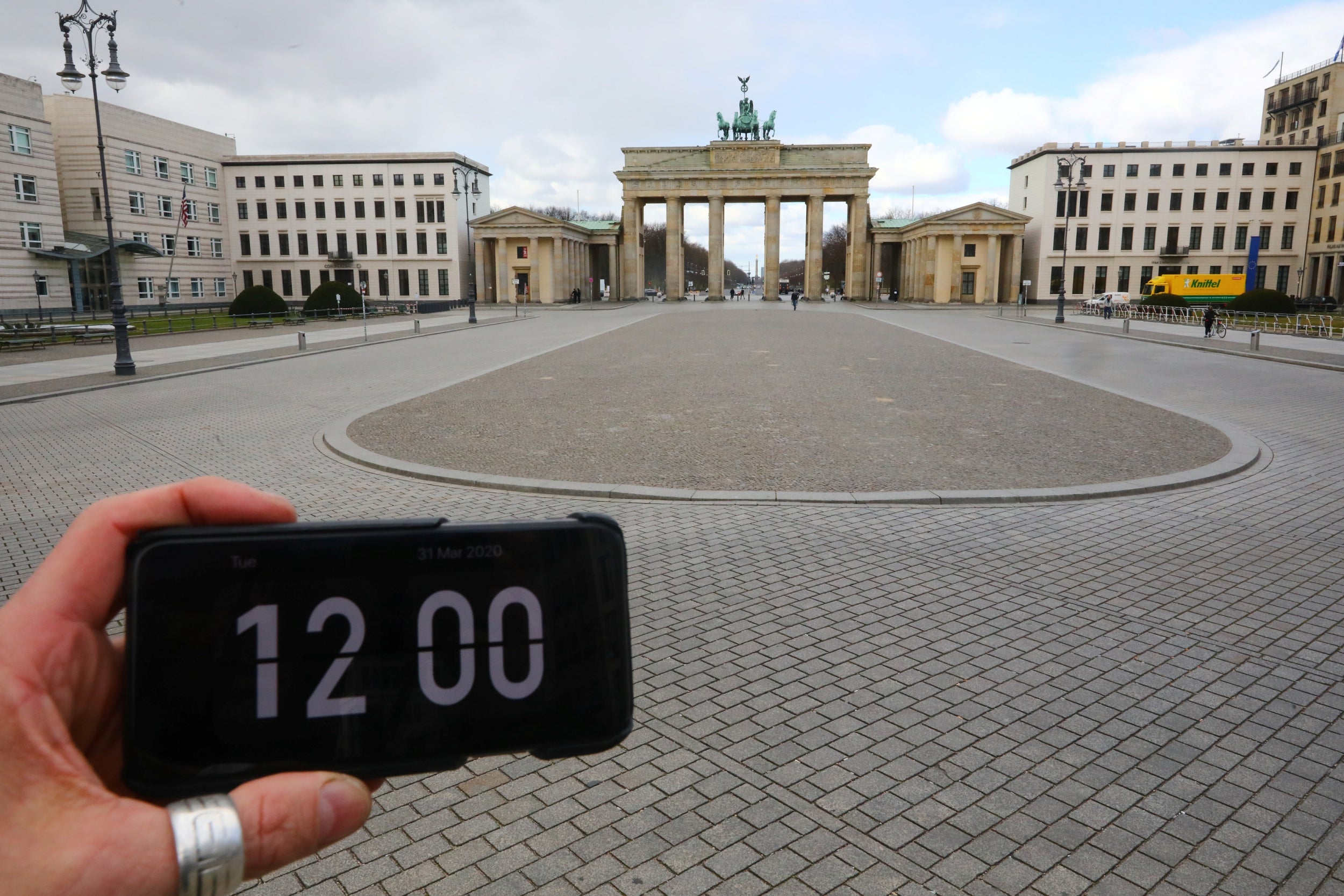
10/18 Berlin, Germany
Brandenburg gate
Reuters
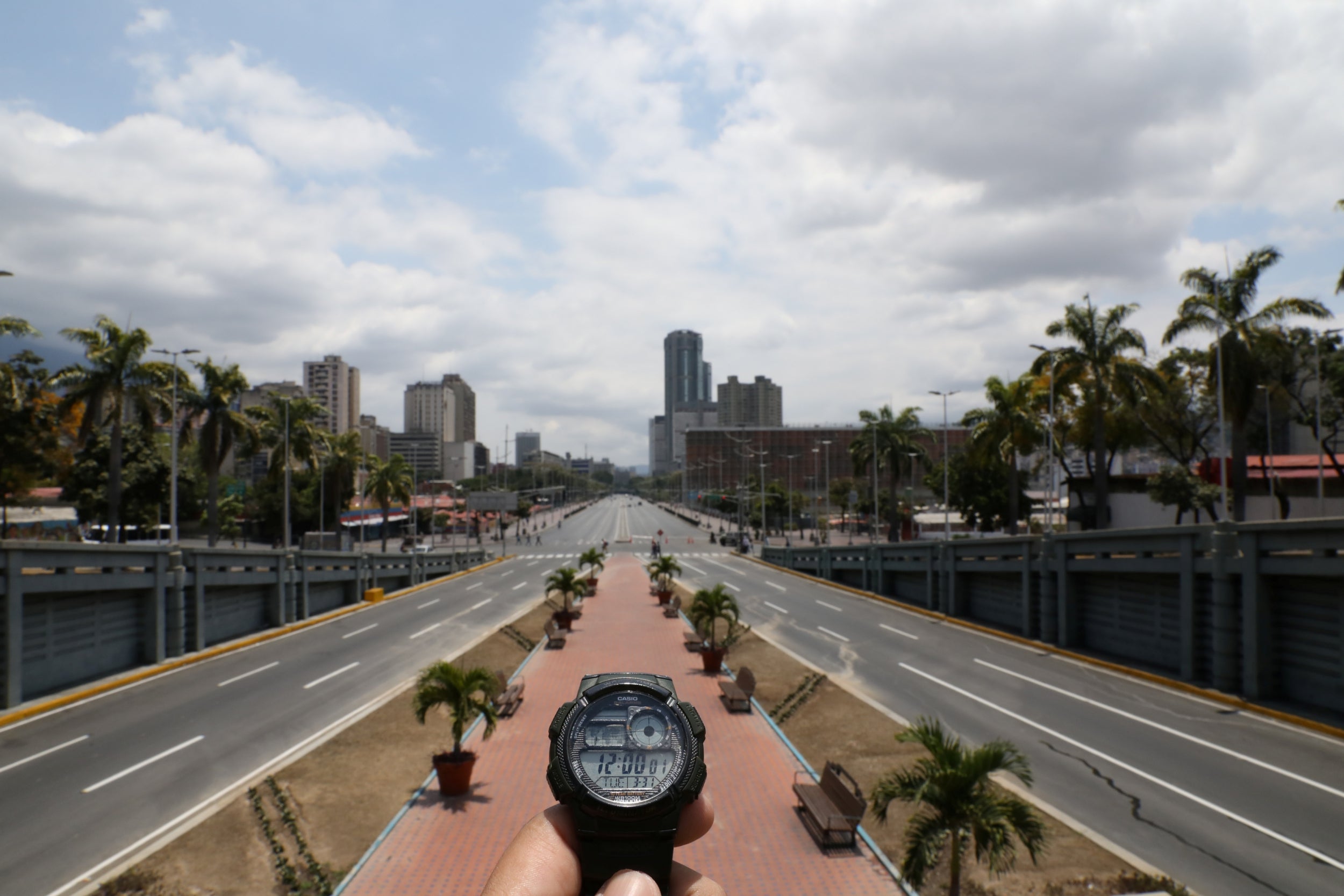
11/18 Caracas, Venezuela
Bolivar avenue
Reuters
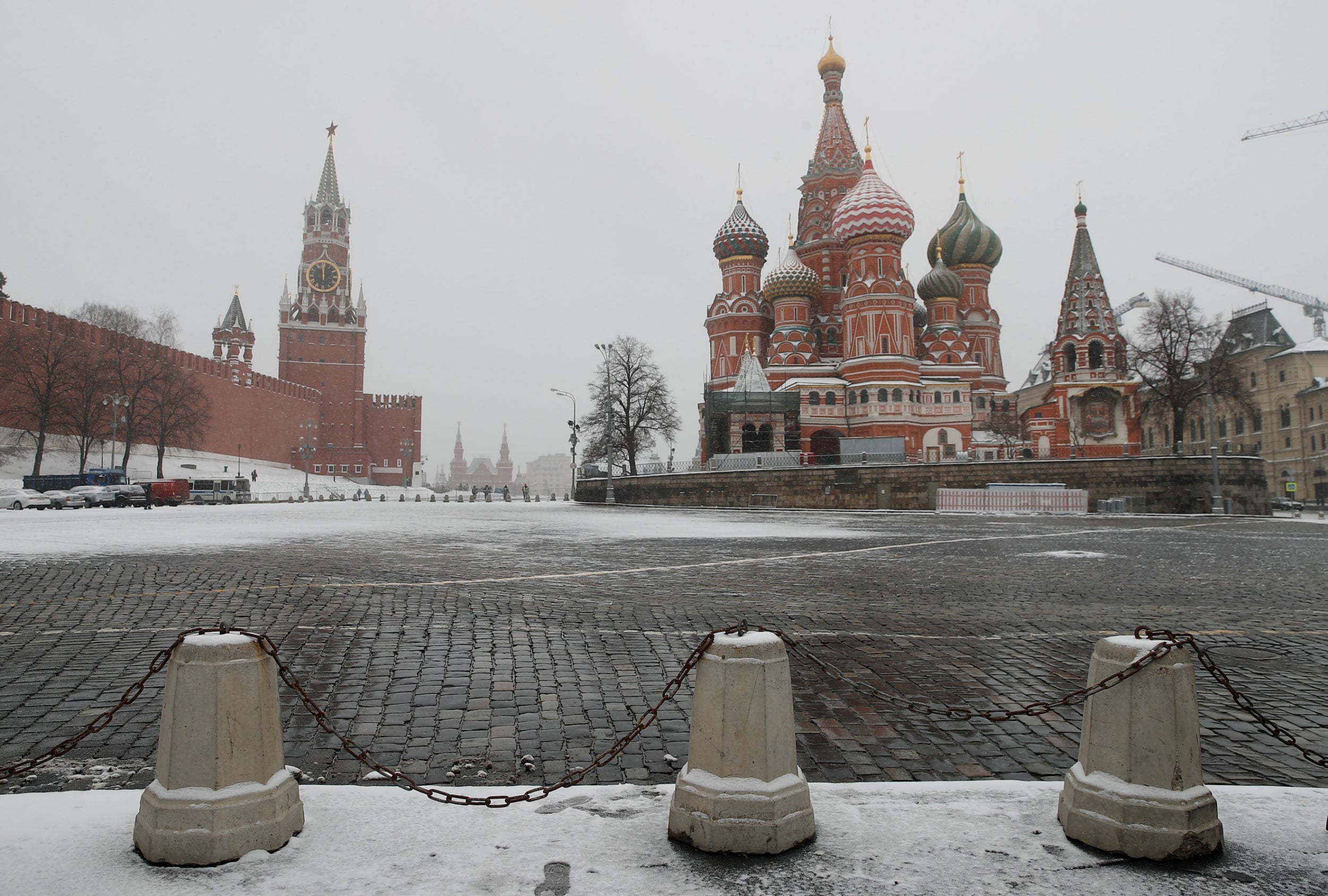
12/18 Moscow, Russia
The clock on Spasskaya tower showing the time at noon, next to Moscow’s Kremlin, and St Basil’s Cathedral on an empty square
Reuters
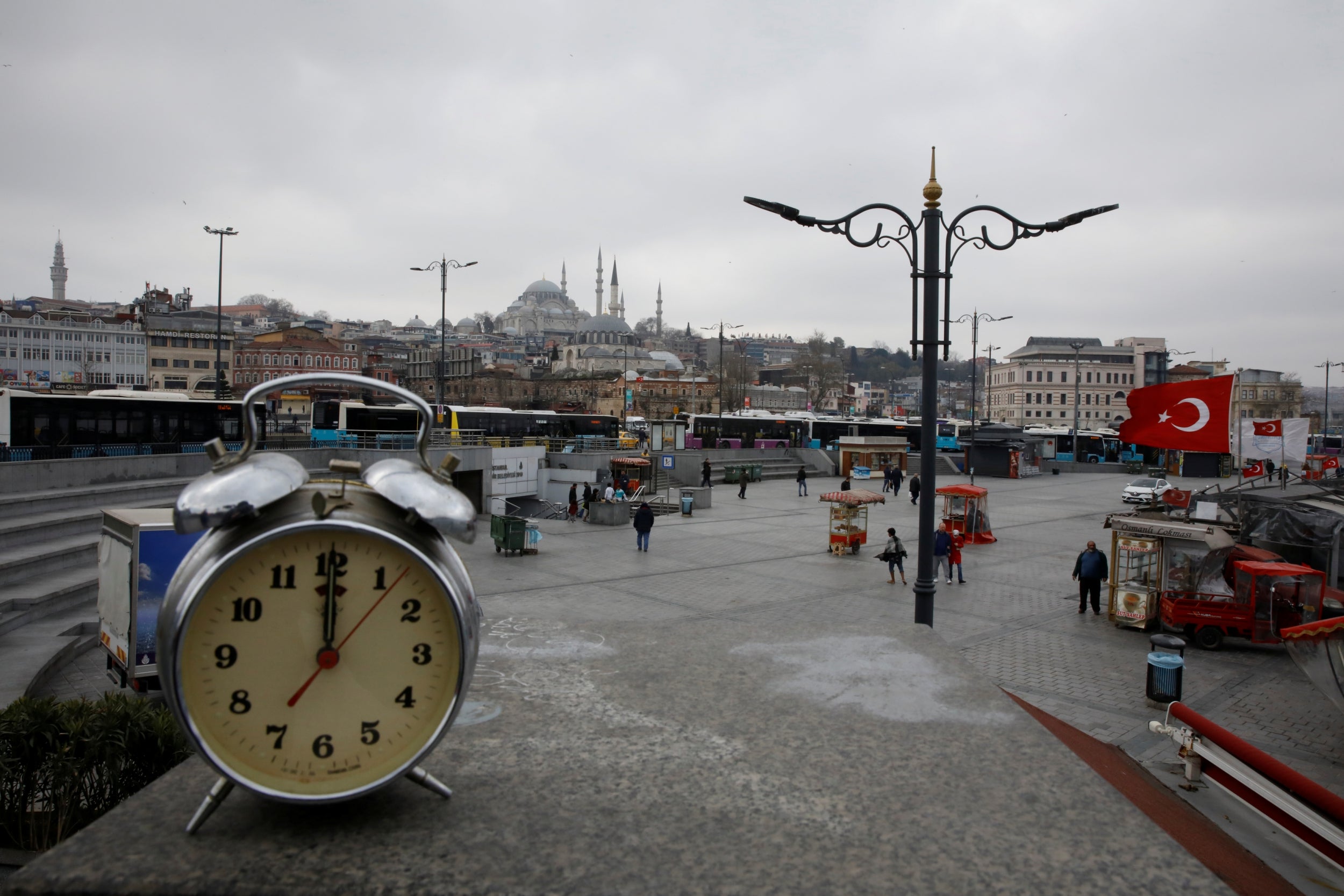
13/18 Istanbul,Turkey
Emionu district
Reuters
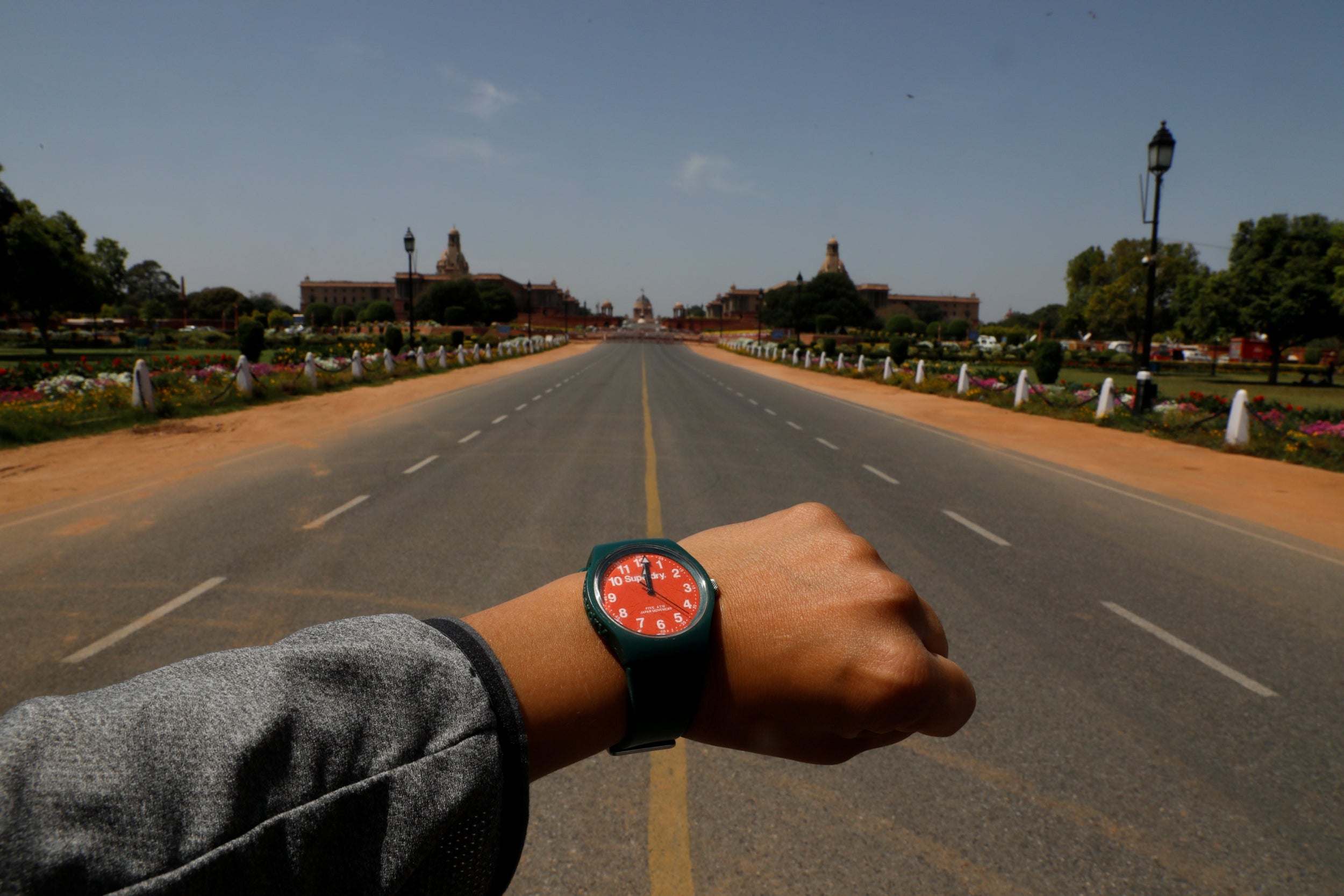
14/18 New Delhi, India
An empty road at Rajpath
Reuters

15/18 Amman, Jordan
The Roman amphitheater
Reuters

16/18 New York City, US
The clock strikes noon at the main concourse of the Grand Central Terminal in Manhattan
Reuters

17/18 Kiev, Ukraine
Almost empty streets at Maidan Nezalezhnosti (Independence Square)
Reuters
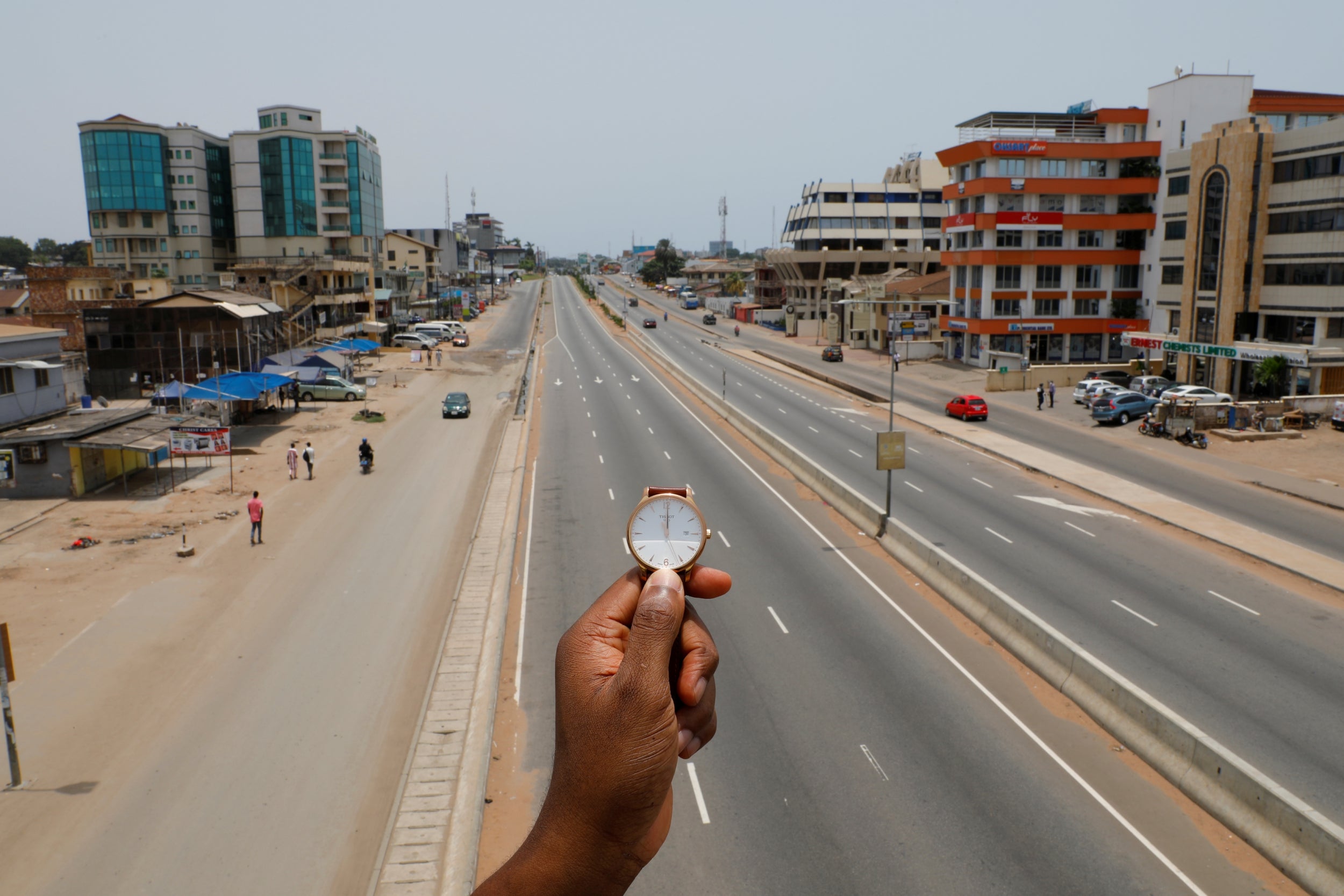
18/18 Accra, Ghana
People walk past Ring Road Central Street
Reuters

1/18 Najaf, Iraq
A man holds a pocket watch at noon, at an almost empty market near the Imam Ali shrine
Reuters

2/18 Bangkok, Thailand
Wat Phra Si Rattana Satsadaram (The Temple of the Emerald Buddha, also known as The Grand Palace)
Reuters

3/18 Prague, Czech Republic
Empty streets at Old Town Square
Reuters

4/18 Washington, US
United States Capitol
Reuters

5/18 Jerusalem’s Old City
A watch showing the time at noon, in front of Damascus Gate
Reuters

6/18 London, UK
A woman jogs past the Houses of Parliament on Westminster Bridge
Reuters

7/18 Wuhan, China
Empty road with low traffic
Reuters

8/18 Havana, Cuba
The seafront Malecon next to an almost empty road
Reuters

9/18 Cairo, Egypt
Tahrir Square
Reuters

10/18 Berlin, Germany
Brandenburg gate
Reuters

11/18 Caracas, Venezuela
Bolivar avenue
Reuters

12/18 Moscow, Russia
The clock on Spasskaya tower showing the time at noon, next to Moscow’s Kremlin, and St Basil’s Cathedral on an empty square
Reuters

13/18 Istanbul,Turkey
Emionu district
Reuters

14/18 New Delhi, India
An empty road at Rajpath
Reuters

15/18 Amman, Jordan
The Roman amphitheater
Reuters

16/18 New York City, US
The clock strikes noon at the main concourse of the Grand Central Terminal in Manhattan
Reuters

17/18 Kiev, Ukraine
Almost empty streets at Maidan Nezalezhnosti (Independence Square)
Reuters

18/18 Accra, Ghana
People walk past Ring Road Central Street
Reuters
Around 5,000 are being recruited, with some coming from across Whitehall, such as the Passport Office.
Thousands of call handlers will be working from home once they get the right IT equipment, he said, as all jobcentres have been closed to prevent the spread of the virus.
It comes as a new report by the Institute of Employment Rights think tank warned that millions of workers could face destitution due to gaps in the income protection plans.
Labour peer Lord Hendy, who wrote the report, said reassurances offered by ministers to millions of low-income people may be “misguided” as up to 9 million people could be missing out on sick pay and 7 million are not eligible for the furlough scheme.
Elsewhere, Citizen’s Advice reported a 39 per cent rise in enquiries during the coronavirus outbreak, with 9 million page views for its website in the past month.



